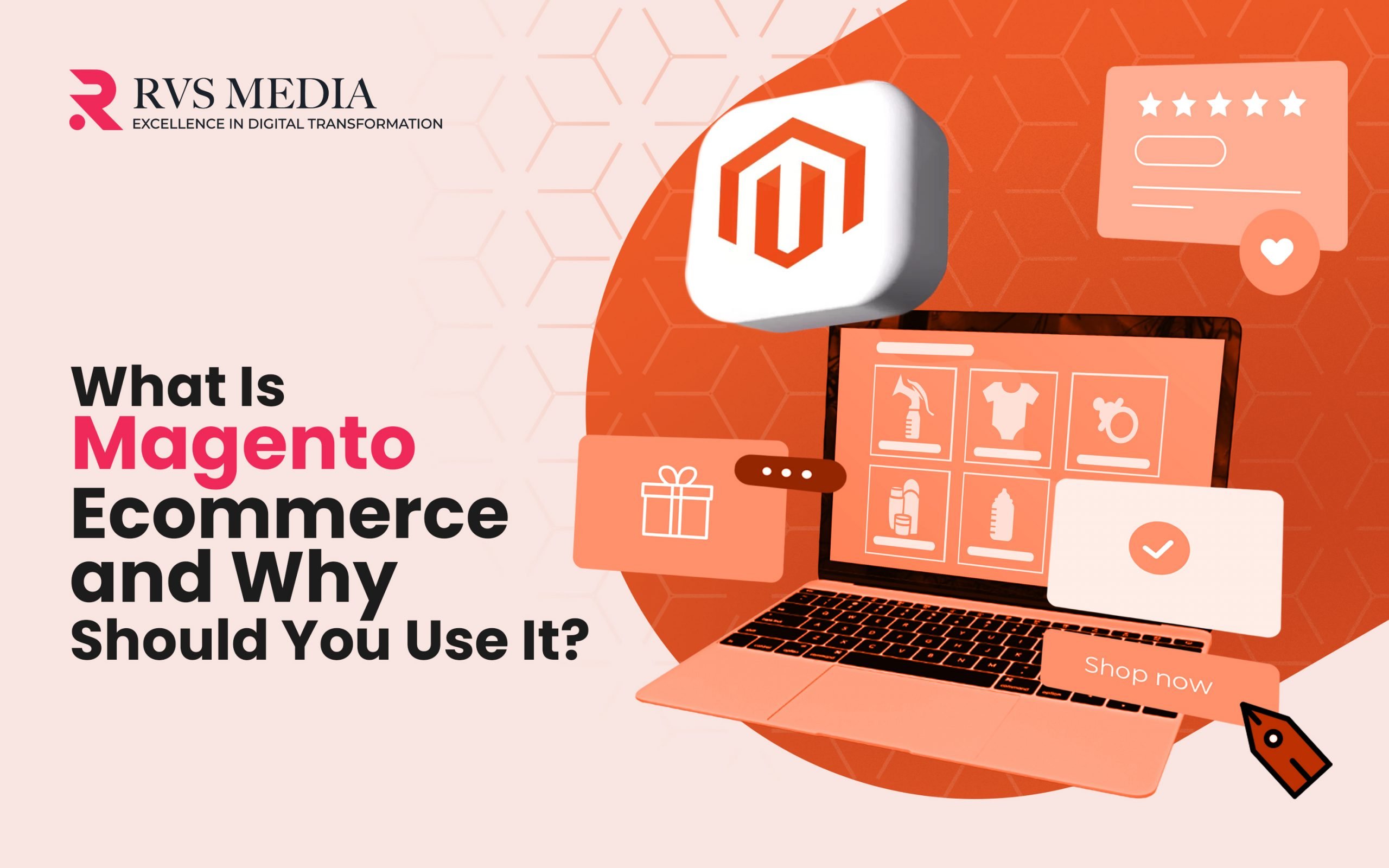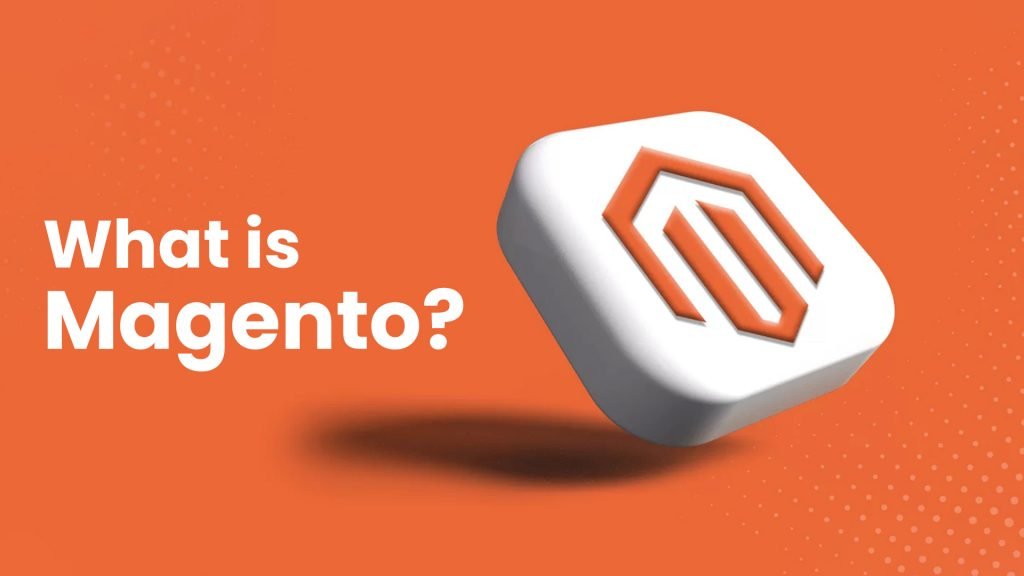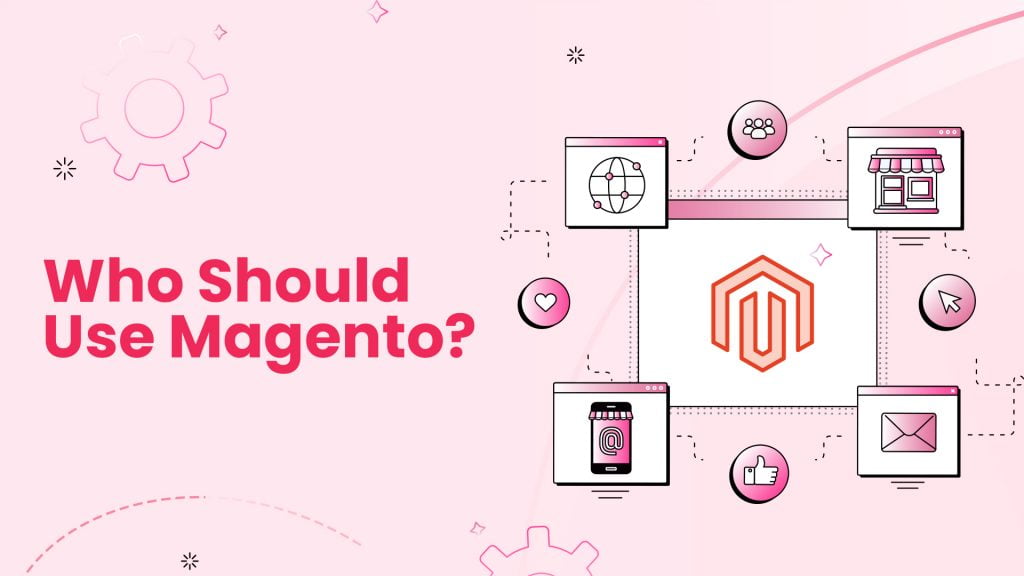Everything you Should know about Magento Open Source and Adobe Commerce
- Mar 5, 2024
- By Shubham Verma

Are you looking for a robust e-commerce solution? Then you should consider Magento Ecommerce, which offers an extensive platform with unparalleled functionality and versatility. However, you may be wondering, what exactly is Magento, and why should you choose it? Don’t worry, we’ll guide you through it all!
What is Magento?

Magento is a PHP-based platform designed for creating eCommerce websites, initially released on March 31, 2008, by Varien and developed on the Zend Framework. Over the years, it has become a popular choice for hundreds of thousands of businesses, including industry giants like Nike and Samsung, looking to establish their online presence. In 2018, Adobe acquired Magento for $1.68 billion, enhancing its capabilities and paving the way for further growth, particularly in the enterprise market.
customers have a uniform, speedy shopping experience using a unified eCommerce solution.
Examples of websites built on Magento
Magento is a preferred choice for over 200,000 websites, making it a dominant player in the world of e-commerce platforms.
Its popularity stems from a host of unique features that cater to the diverse needs of online businesses, despite some minor flaws that can be easily addressed.
Numerous well-known brands have entrusted Magento Commerce with the task of building their websites, demonstrating their confidence in the platform’s capabilities. These brands recognise Magento’s ability to deliver robust e-commerce solutions that align with their specific requirements and contribute to their online success.
Let us walk you through some of the most well-planned Magento websites:
1. Amathus Drinks:
Amathus Drinks utilises Magento’s seamless product integration to showcase its diverse range of alcoholic beverages, ensuring effortless browsing and secure transactions. With Magento’s robust inventory management system, Amathus efficiently manages stock levels and offers personalised recommendations, catering to its discerning clientele’s preferences.

2. Gemar UK:
Gemar UK utilises Magento’s advanced inventory management features to efficiently track stock levels and automate order fulfilment processes for its specialised party supply business. With Magento’s customisable product attributes and categorisation options, Gemar effectively organises its extensive range of party supplies, ensuring streamlined browsing and checkout experiences for customers.

3. Owen Brothers Catering:
Owen Brothers Catering customises its website’s user experience using Magento’s flexible content management system, showcasing its diverse catering offerings and services. Leveraging Magento’s intuitive order management system, Owen Brothers efficiently processes catering orders and coordinates delivery logistics, while integrated customer relationship management tools foster customer loyalty through personalised interactions.

4. JTX Fitness:
JTX Fitness benefits from Magento’s scalability to handle high traffic volumes, supporting its dynamic fitness equipment marketplace. Leveraging Magento’s flexible product configuration options and advanced search functionality, JTX Fitness empowers customers to easily find and compare fitness equipment, while integrated payment gateways ensure smooth and secure transactions.

5. Temptation Gifts:
Temptation Gifts utilises Magento’s advanced analytics tools to gain insights into customer behaviour, optimising marketing strategies for increased sales. With Magento’s robust customer segmentation and targeting features, Temptation Gifts tailors promotional offers and product recommendations, while seamless integration with third-party marketing tools enables omnichannel marketing strategies to maximise brand exposure and revenue opportunities.

Why use Magento?
When it comes to creating a professional, long-lasting eCommerce website, Magento should be your top choice. Widely regarded as the premier open-source platform for building online stores, Magento stands out for its professionalism and, importantly, it’s completely free. With just a basic grasp of English and technology, you can leverage Magento to craft a truly impressive online presence, making your site truly monumental.
Here are some basic features of Magento:
- Product Management: Easily manage products with multiple images, optional product reviews, favorites list, and inventory tracking.
- Category Management: Efficiently organise and browse products by category for streamlined navigation.
- Inventory Management: Keep track of product stock levels, import/export inventory data, and effectively manage product availability.
- Client Account: Provide customers with personalised account features including order status, transaction history, preferred catalog, address management, and shopping cart functionality.
- Customer Service: Enhance customer experience with features like a contact form, comprehensive follow-up options, and email support.
- Order Management: Efficiently process and manage orders to ensure timely delivery and customer satisfaction.
- Payments: Offer various payment methods such as credit cards, PayPal, Authorize.net, Google Checkout, and support for external payment modules like CyberSource, ePay, eWAY, etc.
- Search Technology: Implement fast and user-friendly search functionality, including support for Google Sitemap indexing.
- International Support: Provide multi-lingual and multi-currency support to cater to a global audience.
- Promotional and Marketing Tools: Utilise built-in tools for creating and managing promotions, discounts, coupons, and other marketing campaigns to drive sales.
- Analysis and Reporting: Integrate with Google Analytics to gather valuable insights and generate various reports for performance analysis and optimisation.
Who Should Use Magento?

Magento is an excellent choice for ecommerce businesses, whether you’re the owner or part of the management team. It’s designed to be user-friendly, even for those without technical expertise. This means you can dive into building your online store without worrying about complicated development processes.
However, don’t let its user-friendliness fool you – Magento is a robust platform capable of handling millions of customers. As your business grows, the complexity of managing the system may increase slightly. For startups and small businesses looking for simplicity, user-friendly web design tools like HubSpot’s Drag-and-Drop Website Builder could be a better fit.
While Magento is intuitive for basic setup and management, there might come a point where you’ll need to enlist outside help, especially when integrating multiple systems into your website. But rest assured, with Magento’s scalability and support options, you’ll have the resources you need to take your online business to the next level.
What makes Magento different from other ecommerce platforms?
Open source – Highly customisation
Open source platforms like Magento Commerce offer highly customisable solutions for e-commerce. Unlike proprietary platforms, where customisation options may be limited, Magento provides flexibility and scalability, allowing you to tailor your online store to your exact specifications.
For instance, consider a scenario where a clothing retailer wants to create a unique shopping experience for their customers. With Magento Commerce, they can easily customise their website layout, add personalised product recommendations, and implement special features like virtual try-on tools—all to create a distinct and memorable brand experience.
In contrast, while paid e-commerce platforms are available, they often come with predefined templates and limited customisation options. These platforms may not offer the same flexibility and adaptability as ty as Magento Commerce, making it more challenging for businesses to create truly unique and differentiated online stores.
Freedom to choose the hosting services
Magento empowers eCommerce retailers by allowing them the freedom to choose their preferred hosting platform. Unlike other platforms that may restrict users to specific hosting providers, Magento enables businesses to select from a variety of hosting options, granting them the flexibility to host their files wherever they see fit. This freedom gives online shopping businesses greater control over their hosting decisions and the ability to tailor their hosting setup to their unique needs.
Responsive mobile
Magento excels at maintaining top-notch standards in mobile web design, ensuring that both the free community edition and the enterprise version deliver an exceptional mobile shopping experience. By leveraging the power of HTML5, Magento guarantees that your eCommerce store is always optimised for mobile devices. So whether your customers are browsing on their smartphones or tablets, you can rest assured that your online store will provide a seamless and engaging shopping experience on any device.
Simple platform integration
Third-party modules and add-ons are simple to incorporate into your Magento store.
This provider does not impose any limitations on modifications. To help with data analysis, the platform also enables store owners to integrate Google Analytics and other similar third-party applications (such eBay, Paypal, Mail Chimp, etc.) with their website.
Your task is to research the best devices and “plug” them into your store as soon as possible!
Adding to Magento’s flexibility, you may improve your e-commerce business by integrating it with ERP, shipping, and accounting systems. This smooth integration increases overall efficiency, optimises inventory management, and streamlines finance procedures.
Boost the speed of your website
In terms of page loading speed, Magento reigns supreme once more!
In fact, Magento is renowned for its ability to create web pages that load quickly and has set out to create the fastest eCommerce sites on the planet.
Furthermore, as you are undoubtedly already aware, pages that load slowly will “sink” quickly. The loss resulting from a delayed loading page is frequently seen right away, which occasionally has unexpected repercussions.
Because Magento can be customised and has a high level of trust, its performance as a platform may surprise you. You may amaze your clients and speed up your website even more by using a PWA shop.
SEO friendly
Magento is not just a powerful e-commerce platform – it’s also an SEO-friendly content management system, commonly known as Magento SEO.
Packed with a plethora of SEO features, Magento ensures your online store is optimised for search engines:
- Search-friendly URLs
- Sitemaps
- Layered navigation
- Product titles, keywords, meta tags, and meta descriptions
In the realm of SEO, Magento ecommerce stays ahead of the curve by staying up-to-date with the latest ranking factors. It offers excellent URL structures and robust meta-implementation options essential for optimising your website for search engines.
Additionally, Magento provides built-in analytics tools for tracking web visitors, making it a standout feature of the platform. With Magento, you can rest assured that your online store will not only look great but also rank well in search engine results, driving more traffic and boosting your sales.
Magento Open Source vs Adobe Commerce
When it comes to choosing the right platform for your e-commerce business, the debate often boils down to Magento Open Source vs. Adobe Commerce. Both options offer powerful features and capabilities, but they cater to different needs and budgets.
Magento Open Source, the free version of Magento, is a popular choice among smaller e-commerce ventures and startups. It provides a robust set of features, including product management, inventory management, customer accounts, order management, and more. With its open-source nature, Magento Open Source offers flexibility for customisation and scalability as your business grows. It’s an ideal choice for businesses looking for a cost-effective solution without compromising on functionality.
On the other hand, Adobe Commerce (formerly known as Magento Commerce) is a premium, enterprise-level e-commerce platform offered by Adobe. It comes with a suite of advanced features and tools designed to meet the needs of large-scale businesses and high-volume online stores. Adobe Commerce offers additional functionalities such as advanced marketing and promotion tools, customer segmentation, content staging, and more robust support and security features. While Adobe Commerce comes with a price tag, it provides a comprehensive solution for businesses that require advanced features and dedicated support.
Ultimately, the choice between Magento Open Source and Adobe Commerce depends on your business needs, budget, and long-term goals. If you’re a smaller business looking for a flexible and cost-effective solution, Magento Open Source may be the way to go. However, if you’re a larger enterprise with complex requirements and a need for advanced features and support, Adobe Commerce could be the better option. Regardless of your choice, both platforms offer powerful tools to help you create a successful online store and drive growth for your business.
Wrapping Up,
In conclusion, Magento Ecommerce stands out as a leading choice for businesses seeking to establish and grow their online presence. With its robust features, unparalleled flexibility, and commitment to innovation, Magento offers a comprehensive solution for creating professional, high-performing e-commerce websites.
From its open-source nature and highly customisable platform to its seamless integration capabilities and top-notch performance in mobile responsiveness and page loading speed, Magento consistently delivers on its promise to provide a superior online shopping experience for both businesses and customers alike.
Furthermore, Magento’s SEO-friendly architecture ensures that your online store is optimised for search engines, driving more traffic and ultimately boosting sales. With Magento, businesses have the tools and resources they need to succeed in today’s competitive e-commerce landscape.
In essence, whether you’re a small business or a large enterprise, Magento Ecommerce offers the versatility, scalability, and functionality required to thrive in the digital marketplace, making it the preferred choice for businesses worldwide.





















